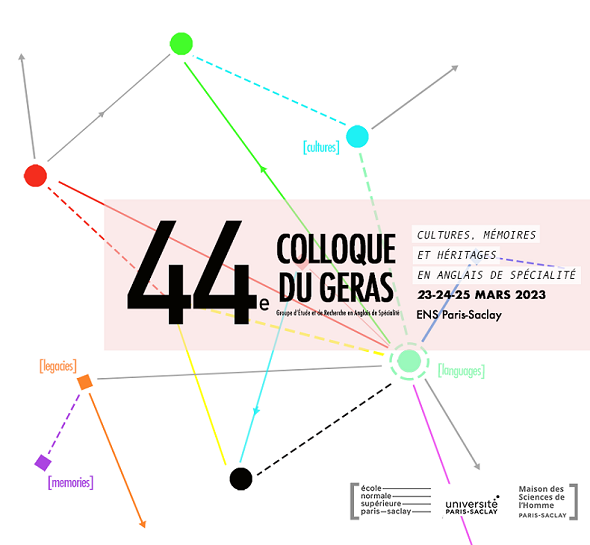Keynotes
PLENARY # 1 Professor Shona WHYTE, Université Côté d'Azur, France Converging trends? Cultures of teaching and learning in English for Specific Purposes in the UK and France In this talk I examine links between the development of English for specific purposes (ESP) teaching and learning in the UK and in France in the latter part of the twentieth century, a period described by Swales (2013: 137) as a “golden age” for applied linguistics in the British Council which marks the beginning of the history of ESP in its current form (Whyte, 2022). In previous work I have investigated the roots of ESP from a British perspective, showing how the pioneering milestones in our field marked out by figures such as John Swales, Tim Johns, and Tony Dudley-Evans were made possible by groundwork laid in the 1960s by the first British applied linguists. The contributions of linguists like Henry Widdowson, John Munby and David Wilkins also informed the development of general English language teaching, underpinning the introduction of communicative language teaching and the beginnings of the common European framework which is our reference for language teaching and testing today. The evolution of "anglais de spécialité" in France shows some parallels as well as divergent development with respect to dimensions such as the practitioner-theorist divide, links between specialised and generalist teaching and learning, and applied linguistic versus discourse analytical approaches. Similarities and differences on each side of the Channel also emerge with respect to teacher and learner roles, teacher education and teaching materials, and educational culture more broadly. This talk offers a panorama of this shared culture in ESP teaching and learning, drawing on contemporary articles and textbooks as well as retrospective memoirs, highlighting the influence of policy and practice but also unplanned and serendipitous developments, and showing how our common histories continue to play out in ESP today. Swales, J. M. (2013). Incidents in an educational life: A memoir (of sorts). Ann Arbor, MI: University of Michigan Press. Whyte, S. (2022). The British Juggernaut: ESP Practice and Purpose in the 1970s. In Smith, R., & Doff, S. (Eds.). Policies and Practice in Language Learning and Teaching: 20th century historical practices. (pp. 237-260). Amsterdam University Press. Shona Whyte is a Professor in Applied Linguistics at Université Côte d’Azur, France. Her work at the research laboratory Bases, Corpus, Language (BCL) focuses on second language (L2) studies including acquisition and learning, technology-mediated interaction, and language teacher education. She has also published on twentieth-century history of applied linguistics and English for Specific Purposes (ESP) in France and the UK. Recent projects involve virtual exchange with young EFL pupils (RAVEL), and technology-mediated pedagogy in higher education (SHOUT4HE). She is active in the French applied linguistics association AFLA and the L2 research network ReAL2, and is associate editor for the ReCALL journal.
PLENARY # 2 Dr. Stefano VICARI, University of Genoa, Italy When memory becomes culture: Discourse analysis and specialised social communities The conference will first present an overview of the way in which the notion of memory has been used in discourse analysis, from the proposals of Courtine (1981), to more recent reflections, formulated by Moirand (2003, 2007) and by Paveau (2006, 2007), who integrates the perspective of distributed cognition. The objective is to shed light on the conditions of operationality of the notion in discourse analysis, and in particular, in the analysis of the discourses produced in a specialized environment, by using an ecological approach which takes into account the affordances of texts in the identification of possible objects for study in the discursive materiality, as well as 'located' stakes and social, discursive and argumentative parameters. We will then present case studies from texts presenting different degrees of specialization in order to show how memory/memories is/are mobilized and allow(s) to constitute or consolidate group and professional identities through processes such as axiologization, mythopoièsis (Van Leeuwen, T., Wodak R. 1999) and forms of perspectivation (Wodak, 2001), etc. I will analyze the discursive effects produced by particular enunciative configurations allowing to situate the enunciators within a community and by the use of certain terminological denominations and metaphors (Rossi, 2015), allusions, appeals to forms of shared knowledge presented as a prerequisite to discoursal construction, which make it possible to weave social links based on the construction of a common discursive memory. References Moirand, S., 2007, « Discours, mémoires et contextes : à propos du fonctionnement de l’allusion dans la presse », Corela, HS-6 http://journals.openedition.org/corela/1567. Moirand S., 2003, « Les lieux d’inscription d’une mémoire interdiscursive », dans Härmä J. : Le langage des médias : des discours éphémères ?, Paris, l’Harmattan, 83-111. Paveau M.-A., 2007, « Discours et cognition. Les prédiscours entre cadres internes et environnement extérieur », Corela, HS-6, http://corela.edel.univ-poitiers.fr/index.php?id=1550. Paveau M.-A., 2006, Les prédiscours. Sens, mémoire, cognition, Paris, Presses Sorbonne nouvelle. Rossi, M., 2015, In rure alieno. Métaphores et termes nomades dans les langues de spécialité. Berne, Berlin, Bruxelles, Francfort-sur-le-Main, New York, Oxford, Vienne : Peter Lang. Van Leeuwen, T., Wodak R, 1999, « Legitimizing Immigration Control : A Discourse-Historical Analysis », Discourse Studies 1, 83-118. Wodak, R, 2001, The Discourse-Historical Approach. in R, Wodak & M, Meyer (éds), Methods of Critical Discourse Analysis, London : Sage, p. 63-95. |


